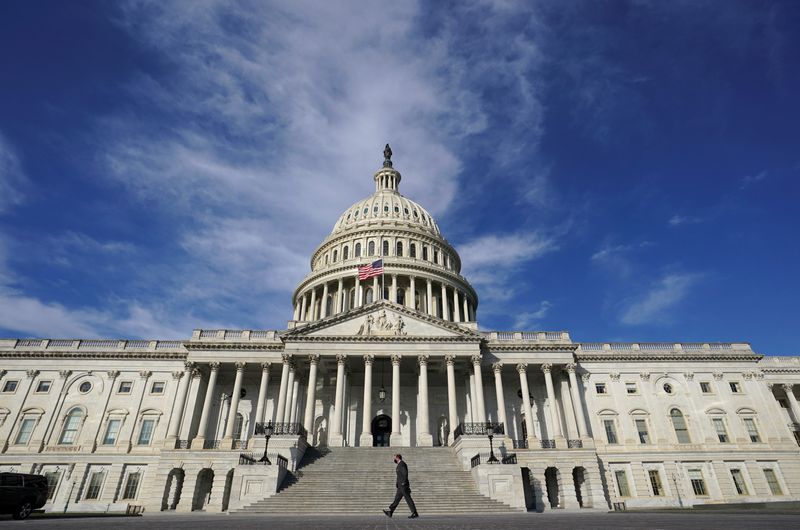By Makini Brice and David Morgan
WASHINGTON (Reuters) - The U.S. Senate worked through the night into Saturday to advance President Joe Biden's $1.9 trillion coronavirus relief plan in a marathon session involving more than a dozen votes and hours of closed-door negotiations.
Democrats who narrowly control the chamber agreed to scale back aid to the millions who have lost their jobs in the crisis. As Friday night turned to Saturday morning, they stuck together to turn back Republican attempts to modify the bill, which according to the Congressional Budget Office would be the largest stimulus package ever.
With Republicans united in opposition, Democrats must keep all 50 of their members on board in order to pass the package, as they hope to do this weekend.
They were tested several times on Friday, as Democrats split over an effort to raise the minimum wage. The Senate set a record for its longest single vote in the modern era -- 11 hours and 50 minutes -- as Democrats negotiated a compromise on unemployment benefits to satisfy centrists like Senator Joe Manchin, who worried the massive package might overheat the economy.
With that resolved, senators then began working through hundreds of proposals to modify the bill.
Democrats voted down Republican proposals to modify how money would have been distributed to schools, state governments, transit systems and farmers. Republicans were one vote down after Senator Dan Sullivan left Washington to go to Alaska for a family funeral.
The largest public health crisis in a century has killed more than 521,000 people in the United States, thrown millions out of work and upended most aspects of American life.
The relief legislation includes funding for vaccines and medical supplies, extends jobless assistance and provides a new round of emergency financial aid to households, small businesses and state and local governments.
Opinion polls indicate broad public support for the package.
Democrats hope to get it to Biden to sign into law before some current benefits expire on March 14.
FRICTION POINTS
Unemployment aid is just one of many friction points in the sweeping bill. Democrats had earlier modified the bill to steer more aid to smaller states and cities.
The version passed by the House of Representatives last Saturday calls for $400 per week in jobless benefits through Aug. 29, on top of state benefits, to help Americans who have lost jobs amid the pandemic.
The compromise would lower that weekly benefit to $300, but extend it through Sept. 6, according to a Democratic aide. It would waive taxes on the first $10,200 in aid that jobless people received last year.
The agreement also extends a tax break for businesses for an additional year through 2026.
Biden supports the compromise, the White House said.
If the Senate passes the bill, the House would have to sign off on those changes before Biden could sign it into law.
Republicans have broadly supported previous stimulus packages to fight the virus and revive the economy. But with Democrats in charge of the White House and both chambers of Congress, they have criticized this bill as too expensive.
The country has yet to replace 9.5 million jobs lost since last year and the White House says it could take years to do so.

Washington got unexpected good news on Friday after data showed that U.S. employment surged in February, adding 379,000 jobs, significantly higher than many economists had expected.